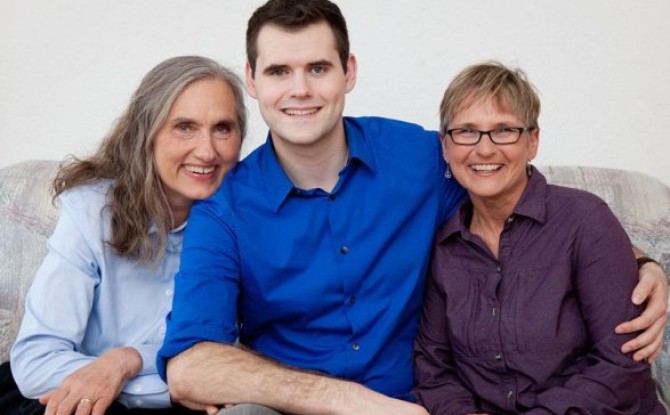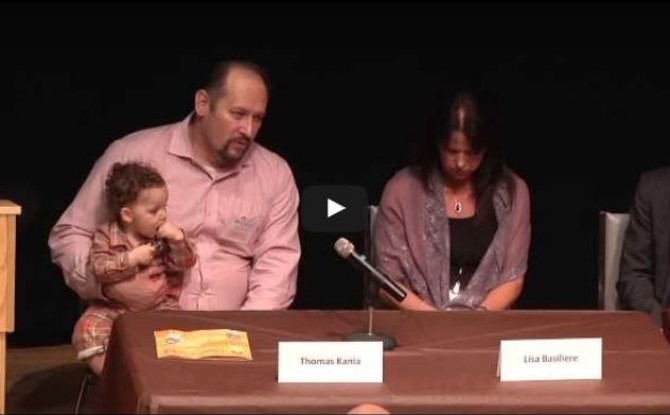By MARILYNN MARCHIONE 10/16/13
BOSTON — BOSTON (AP) — Fertility clinics have put a new twist on how to make babies: A “two-mom” approach that lets female same-sex couples share the biological role. One woman’s eggs are mixed in a lab dish with donor sperm, then implanted in the other woman, who carries the pregnancy.
A New York doctor described 18 of these cases Tuesday at a fertility conference in Boston that featured other research on ways to help same-sex couples have children. Dr. Alan Copperman is medical director of Reproductive Medicine Associates, a New York City clinic that does the “two-mom” approach.
A New York couple — Sarah Marshall, 40, a recruiter for law firms, and Maggie Leigh Marshall, 35, a real estate broker — used it to have their daughter, Graham, now 18 months old. Maggie’s eggs were used to make embryos that were implanted in Sarah, and both women are listed as parents on the birth certificate.
“It allowed us both to participate,” Sarah Marshall said. “I had to mentally and psychologically give up the idea of, is she going to look like me or my family. But from the time I started carrying her up to now, she is definitely mine.”
Maggie Marshall said she had no interest in being pregnant, but “Sarah really wanted to have the experience. We also thought it would be a great way to bond with a kid that ultimately would look a lot like me.”
It wasn’t cheap — the couple spent nearly $100,000 on multiple failed attempts before the last one worked. A single in vitro fertilization attempt can run $15,000 to more than $20,000, depending on how much embryo testing is done and whether some embryos are frozen to allow multiple attempts from one batch.
One Canadian study suggests that more lesbian couples have been seeking fertility services in Ontario since same-sex marriage was legalized in the province a decade ago. Some doctors think interest also is up in the U.S. For male couples, many clinics offer egg donors and surrogate moms, using one or both men’s sperm.
“The modern family is created in a way that would be humbled by traditional fertility treatments,” said Copperman. “We’re seeing more and more couples come in and want to share the parenting experience,” and their medical forms more often say “wife” rather than “domestic partner.”
“This is something that a lot of lesbian couples choose to do” if they can afford it, said Melissa Brisman, a reproductive law specialist in Montvale, N.J., who has advised many such couples. “Some doctors really have a problem doing this for non-medical reasons” because any medical procedures carry risks of infections or other complications, she added.
Click here to read the entire article.


 Numerous professional organizations
Numerous professional organizations 